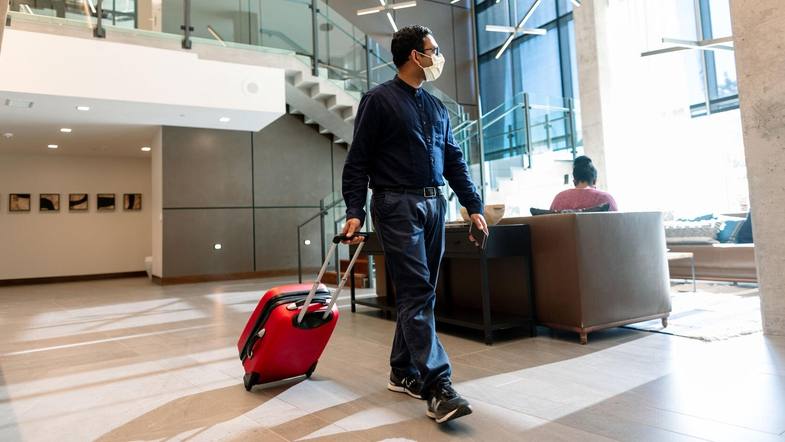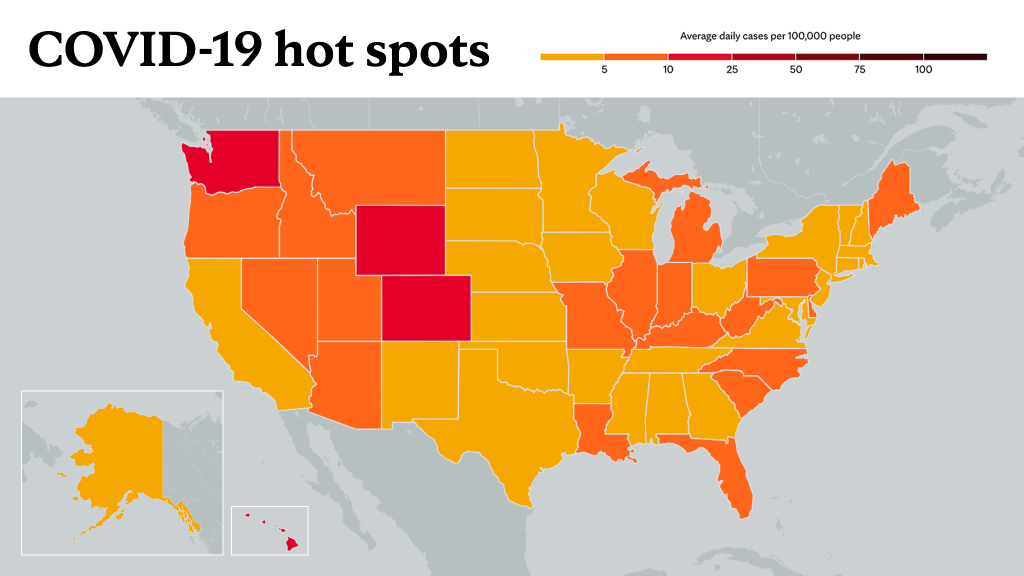
As more people are vaccinated for COVID-19, many are looking forward to being able to travel again. While many restrictions have been lifted, COVID-19 has not gone away. So how safe is it to travel?
Dr. Stacey Rizza, a Mayo Clinic infectious diseases specialist, answers questions about traveling at this point in the pandemic.
Watch: Dr. Stacey Rizza weighs in on travel during the COVID-19 pandemic.
Journalists: Broadcast-quality sound bites with Dr. Rizza are in the downloads at the end of the post. Please courtesy: "Stacey Rizza, M.D. / Infectious Diseases / Mayo Clinic."
What is the most important step to ensuring safe travel?
Without a doubt, the most important thing people can do to protect themselves is to get vaccinated for COVID-19. I recommend that all eligible people in the U.S. get vaccinated for COVID-19. That is going to dramatically decrease your risk of getting infected with SARS-CoV-2, the virus that causes COVID-19, and also dramatically decrease the risk that even if you were infected, you could transmit it to others.
Are fully vaccinated travelers still required to wear a mask on an airplane?
Yes. Although the Centers for Disease Control and Prevention has relaxed mask guidelines for fully vaccinated Americans, the Transportation Security Administration has extended its federal mask mandate through September. That's because we still have a considerable number of people in the U.S. who are not vaccinated yet. And on airplanes, people are in close proximity for a longer period of time.
Beyond getting vaccinated for COVID-19 and wearing a mask in airports, and on planes, buses and trains, Dr. Rizza says it's also still important to practice good hand hygiene and keep your area clean with disinfectant wipes.
What steps should you take when you return from travel?
When people return from travel, some may wonder whether they should be tested for COVID-19. The need to test depends on where they're traveling from. If people are traveling within the U.S., and they are vaccinated, there's no need to be tested and there's no need to quarantine. The only thing they should do is to continue to monitor for symptoms.
If at any time during or after travel people start to develop symptoms that are consistent with COVID-19, such as, fever, shortness of breath, or loss of taste or smell, they should be evaluated by a provider and likely be tested for COVID-19.
If somebody is traveling from outside the U.S., they're going to need to be tested for COVID-19 at least three days before they board the airplane and come back to the U.S. But as long as they do that and the test is negative, no further quarantining or testing should be required once they're in the U.S.
What should people who are traveling with children do?
For families looking to plan a summer getaway with children who are not yet eligible to be vaccinated for COVID-19, they can still travel safely. It just takes a little bit of thought and planning.
If you have children who are unvaccinated, that is probably not the time to bring them to areas where lots of people are congregating because we know they're still at risk of getting infected with COVID-19 if other people in that area are not vaccinated for COVID-19 and can transmit the virus. Even if your children are fastidious masking, there's still a risk.
If you have unvaccinated children, I think it's still safe to fly. But of course, they will always be masked. If you go to places that are more outdoors in more open space, where you're not congregated with lots of other people, I think it's very safe. You just have to think through the steps of what's going to happen on the vacation and position things so that you're not putting your unvaccinated children at risk."
Whether traveling or just attending events with large amounts of people, the bottom line is precautions still need to be taken.
We still do have people getting infected with COVID-19. We still have people being hospitalized. And, unfortunately, we still have people who are dying, as well. So we're not completely done with this. We still have to be careful.
____________________________________________
For the safety of its patients, staff and visitors, Mayo Clinic has strict masking policies in place. Anyone shown without a mask was either recorded prior to COVID-19 or recorded in a nonpatient care area where social distancing and other safety protocols were followed.
Information in this post was accurate at the time of its posting. Due to the fluid nature of the COVID-19 pandemic, scientific understanding, along with guidelines and recommendations, may have changed since the original publication date.
For more information and all your COVID-19 coverage, go to the Mayo Clinic News Network and mayoclinic.org.
Learn more about tracking COVID-19 and COVID-19 trends.

Related Articles







